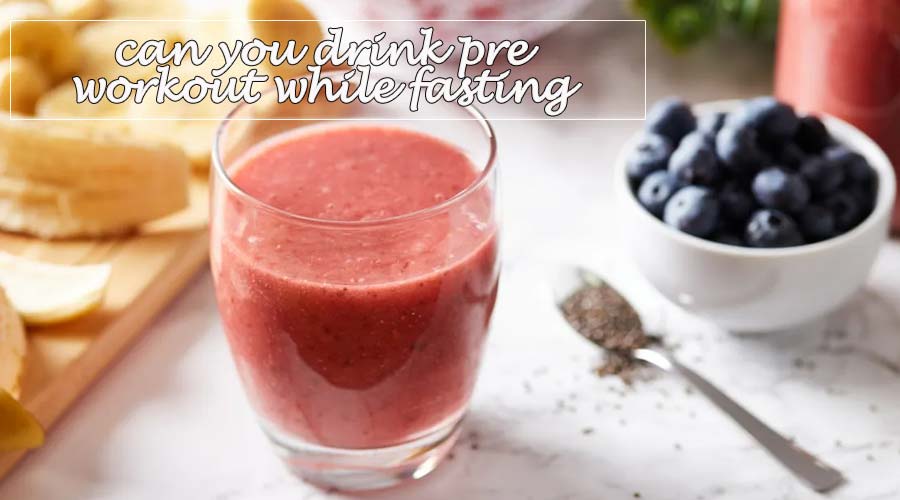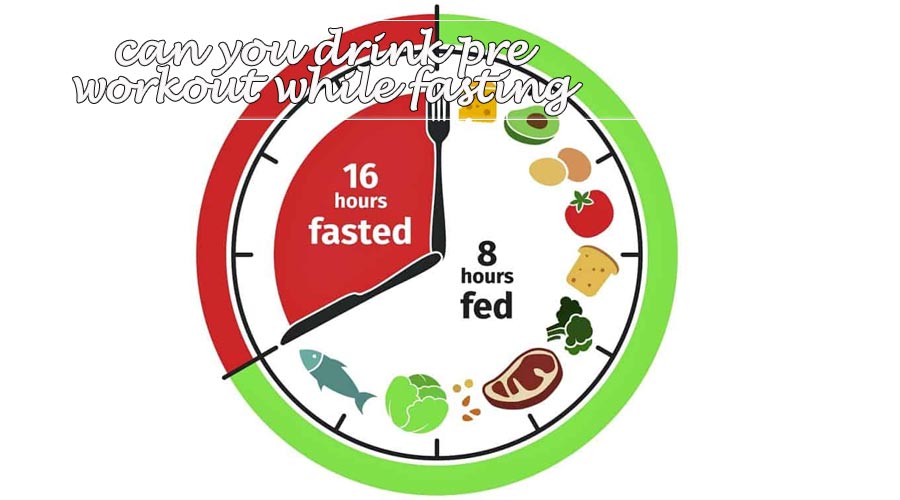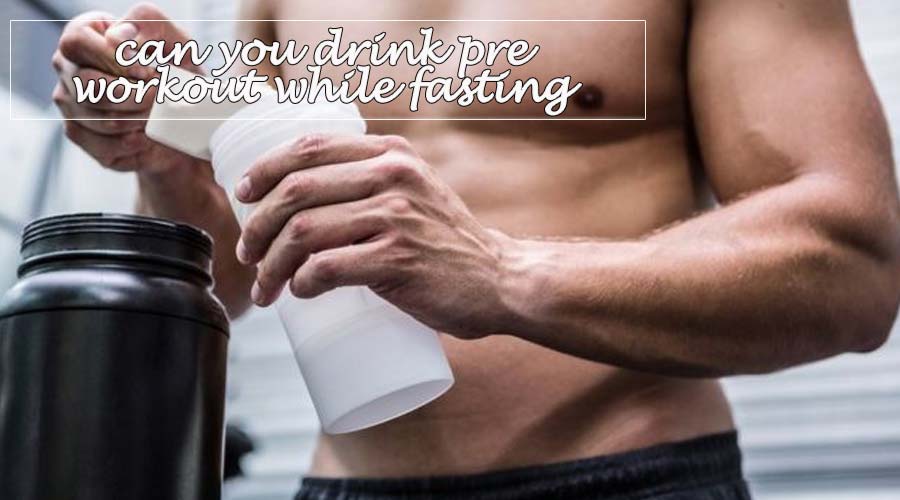 The question of whether you can drink pre-workout while fasting is one that arises often. It has become increasingly popular to fast as a way to kick-start weight loss, improve health and increase energy levels. But what about drinking pre-workout supplements? Can you drink them safely while fasting? The short answer is yes. Pre-workout supplements can be consumed during intermittent fasting or any other type of fast provided they do not contain calories.
The question of whether you can drink pre-workout while fasting is one that arises often. It has become increasingly popular to fast as a way to kick-start weight loss, improve health and increase energy levels. But what about drinking pre-workout supplements? Can you drink them safely while fasting? The short answer is yes. Pre-workout supplements can be consumed during intermittent fasting or any other type of fast provided they do not contain calories.
Pre-workout ingredients such as caffeine and creatine have been found to increase energy levels and enhance performance during exercise when taken in moderation. Caffeine, for example, has been proven to help people stay alert and improve focus, making it helpful for those who are looking for an extra boost of energy before exercising. Additionally, a moderate dose of creatine may also provide benefits such as improved muscle mass and endurance capacity during exercise. This article will discuss the benefits and risks of drinking pre-workout while fasting.
What is Pre Workout?
The ingredients in pre-workout supplements vary from product to product but often include caffeine, B vitamins, amino acids, creatine monohydrate, and other compounds which are believed to enhance performance and improve mental focus. Caffeine has been found to increase alertness while B vitamins may provide support for energy metabolism. Amino acids such as lysine can help promote muscle growth and recovery while creatine monohydrate is believed to improve strength gains with weight training. As with any supplement, it is important to read the label to determine whether a product contains ingredients that may cause allergies or interfere with current medications.
Read more about 100 Burpees a Day Challenge
What is Fasting?
Fasting is a practice of abstaining from food and/or drink that has been used for thousands of years. It is most commonly associated with religious traditions, but it can also be used for health or personal benefits. Fasting involves periods of abstinence from eating and drinking in order to achieve physical, spiritual, and mental clarity.
In terms of religious fasting, it is an act of sacrificing something physical as a way to bring oneself closer to God. Different religions have their own rituals regarding fasting; some may require members to fast during certain times throughout the year while others are more lenient when it comes to their regulations on the topic. Generally, people who fast due to religious reasons will choose specific foods they will or won’t eat during their period of abstinence.

Types of Fasting
Fasting has been practiced for centuries, and there are many different types of fasting used today. Intermittent fasting is one of the most popular methods because it typically involves fasting for 16 to 24 hours every day or two days per week. During these periods of no food, people consume only water or calorie-free beverages such as black coffee and tea. Another approach is alternate-day fasting, which requires complete abstinence from food every other day. Those who choose this type of fasting can eat normally on non-fasting days but should limit calories to about 500 per day on the days they fast. Finally, periodic fasting includes short fasts that range from 12 to 36 hours over a few weeks or months. People will often do this when facing religious or spiritual obligations such as Lenten observance in Christianity or Ramadan in Islam.

Benefits of Fasting
Fasting has numerous health benefits, which include weight loss and improved metabolic functioning. Intermittent fasting, in particular, is an effective form of fasting that cycles between periods of eating and abstaining from food for a set period of time. It can have profound positive effects on physical health and well-being.
Benefits of Pre Workout
Pre Workout is a great way to give yourself an energy boost for your workout. Pre Workout supplements provide intense energy, increased alertness, and improved mental focus. By taking pre-workout before you exercise, you can maximize your performance during physical activities such as running or weight lifting. The benefits of pre-workout are plentiful and can be tailored to fit individual needs.
When taken correctly, pre-workouts can help increase energy levels, improve strength, and enhance endurance during exercise. For example, ingredients like caffeine and B vitamins help provide alertness for longer periods of time so that users don’t experience fatigue quickly or feel the effects of burnout faster than usual. Additionally, some pre-workouts contain stimulants such as beta-alanine which helps create a stronger muscle contraction allowing athletes to push harder during workouts while receiving greater results in the end.

Intermittent Fasting and Pre Workout
Intermittent fasting, paired with pre-workout supplementation, has quickly become one of the most popular health and fitness approaches among those looking to lose weight, gain muscle mass and increase energy. This combination offers a great way to jumpstart your morning workout routine while also providing additional benefits such as increased focus, improved digestion, and enhanced fat-burning capabilities.
Read more about Mastering the Half Burpee
Interactions Between Fasting and Pre Workout
Fasting and pre-workout have a complex relationship. Pre-workout is designed to give you an energy boost, while fasting is a period of time where no food or drink is consumed. The interaction between the two can be beneficial in terms of weight loss and performance, but it’s important to understand their differences before jumping into both activities simultaneously. It’s essential to keep in mind that when it comes to fasting and pre-workout there are risks associated with using them together; this includes dehydration and overstimulation.
The key concept behind fasting and pre-workout is timing: when and what you eat affects the success of your efforts in the gym. For example, eating a light snack before working out helps provide energy for your muscles to use during exercise. On the other hand, if you fast before a workout, your body will have no food sources available, meaning that it must rely on stored fat for fuel instead. This can be beneficial for those looking to lose weight, as short periods of fasting lead to an increase in metabolism which encourages fat burning.
Guidelines for Drinking Pre-Workout While Fasting
When it comes to drinking pre-workout while fasting, there are some key guidelines that must be followed in order to ensure a healthy and safe experience. It’s important for those who are fasting and considering pre-workout supplementation to understand the possible risks associated with consuming these products and how to mitigate them.
The first guideline is that the Drink should contain carbohydrate sources such as dextrose, fructose, glucose, or maltodextrin, however, it should not contain added sugar or artificial sweeteners. When consumed in moderation within an appropriate window of time before exercise, these carbohydrates can provide energy without having an adverse effect on blood sugar levels. Additionally, caffeine may also be present in pre-workouts but should only be used in moderation and never combined with alcohol or any other stimulant compounds.

Strategies to Maximize Results
Potential Risks of Fasted Training with Pre Workout
Fasted training with pre-workout supplements has become increasingly popular in recent years as a way to optimize performance and physique. This type of training involves doing an intense workout on an empty stomach, either first thing in the morning or after a period of not eating for several hours after dinner. However, while this approach can help some find success, there are potential risks that must be considered before engaging in fasted training with pre-workout supplementation.
First and foremost, it is important to note that fasted training can place greater strain on the body due to the lack of energy available from food intake prior to exercise. This may lead to fatigue more quickly and make it difficult to perform strenuous workouts at full intensity. Additionally, without sufficient fuel reserves during exercise, damage done by intense exercising can take longer than normal to heal afterward. In addition to the potential drawbacks of fasted training, pre-workout supplements can cause gastrointestinal discomfort and cramping when taken in a fasted state. By avoiding taking the supplement on an empty stomach, it is possible to avoid this side effect altogether.
Conclusion: Is it Safe to Drink Pre Workout While Fasting?
Fasting and drinking pre-workout can be beneficial for some people in certain situations, but it is best to consult a qualified healthcare professional before incorporating them into your routine. Ultimately, when it comes to the safety of consuming pre-workout while fasting, there is no definitive answer – it will depend on numerous factors such as individual health, lifestyle, and goals.
For those looking to try this combination out, moderation is key – consider only using the amount recommended by manufacturers and consulting a professional if needed. It would also be beneficial to monitor any changes in energy levels or mood that may occur so adjustments can be made accordingly. Most importantly, ensure adequate hydration at all times during both fasting and exercising as this will have a huge impact on overall performance and well-being.